Album review: New-found vocal swagger for Don Walker, Cold Chisel’s key man
Since the deaths of Clive James in 2019 and Barry Humphries last month, Don Walker may be the last surviving polymath of Australian arts and letters, and his fourth solo album is a beauty.
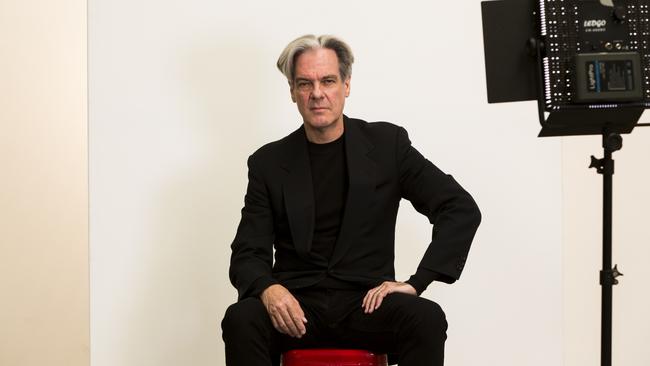
Album reviews for week of May 19 2023:
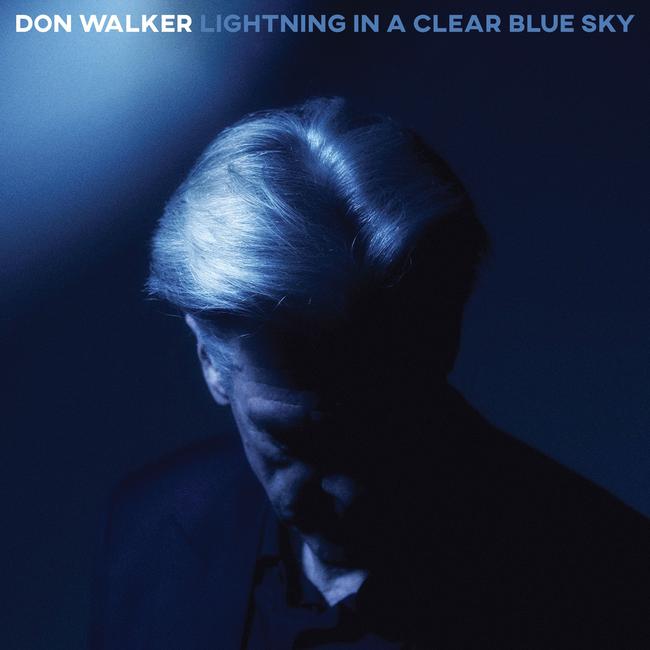
COUNTRY BLUES
Lightning in a Clear Blue Sky
Don Walker
Thrillhill Music/MGM
Since the deaths of Clive James in 2019 and Barry Humphries in April, Don Walker may be the last surviving polymath of Australian arts and letters. Best known as chief songwriter and pianist with Cold Chisel, Catfish and the Suave F..ks, as well as part-time trio Tex, Don & Charlie, he’s also a published author (2010’s Shots, 2019’s Songs) and holds a physics degree with honours in quantum mechanics. To that impressive CV add “singer”, a skill for which Walker has not been noted until now. Featuring most of the Suave F..ks, including pedal steel player Garrett Costigan, bassist Michael Vidale and late guitarist Roydon Payne, who sadly died a few months after its recording last year, Lightning In A Clear Blue Sky opens with stark piano, voice and masterful drummer Hamish Stuart’s whispering hi-hat as Walker croons the opening line of Empty Dance Hall like the best lounge singer you’ve never heard: “I’ve got the song, baby, we’ll need to live.” Next he’s getting down and dirty on Jungle Pam, a swampy blues that hinges on Payne’s distinctive custom double-neck guitar and Walker’s brutal lyric: “She’ll get you with a move that’d stop a motorcade / Who’s a pretty boy, then, slipping in the blade.”
Walker’s new-found vocal swagger permeates the rest of the record, too, whether in customary storytelling mode on the whimsical When I Win The Lottery and Tommy Hanlon’s Motor Home – a surrealistic two-step homage to a ’60s TV host turned circus ringmaster, with plaintive pedal steel – or stretching out across the 11-minute, nine-verse title track, a wide-screen, largely spoken-word epic tale of retribution with distant mariachi horns (by Edgar Sanchez, a Mexican trumpeter Walker tracked down online), redolent of a Sergio Leone spaghetti western. It’s followed by You’ve Got To Move, which spins out the riff from Creedence’s Green River into a travel song that starts on land and moves into the air (“Weighin’ in a suitcase / See ya later, come again / Following the rat-race / Down the tunnel to the plane”). Walker even gets philosophical on the closing Damaged People, reverting to solo piano and voice as he questions the existence of “my God” and spiritual notions of self with its ultimate line, “I’m free, but I’m alone”. Elsewhere, however, he’s in solid musical company, his vocals augmented in several choruses by the three-piece Harmonettes – Amanda Roff, Erica Dunn and Brigitte Hart – whose light touch and playful humour help to leaven Walker’s often stony intensity. All of the surviving Suave F..ks feature on the current tour in support of this album, and while Roy Payne will be sorely missed, his more than able replacement is Shannon Bourne (Black Sorrows, Russell Morris).
Phil Stafford

INDIE ROCK
The Wannabe
Martin Frawley
Spunk
Now on his second solo album in the wake of his former band Twerps, Martin Frawley feels increasingly comfortable as a self-aware solo artist. The Wannabe’s tongue-in-cheek title track paints him as a low-selling act that can’t muster a decent audience. Yet Melbourne-based Frawley does equally well with more earnest fare, whether addressing his late father — respected songwriter Maurice Frawley, pictured on the album cover with a young Martin — on Proud, or his wife Lauren on the dreamily diffuse Lola. Backed by Dan Kelly, members of The Drones and Dick Diver, Frawley revisits Twerps’ bright, hooky brand of guitar-pop while mixing in more Americana touches and even a couple of piano ballads. Given his penchant for directness, these songs often resemble boozy late-night confessions. But there’s a satisfaction in hearing Frawley graduate from his previous album’s pub-steeped standout End of the Bar to this one’s closing track Given Everything, about finding someone who’s worth staying home for.
Doug Wallen
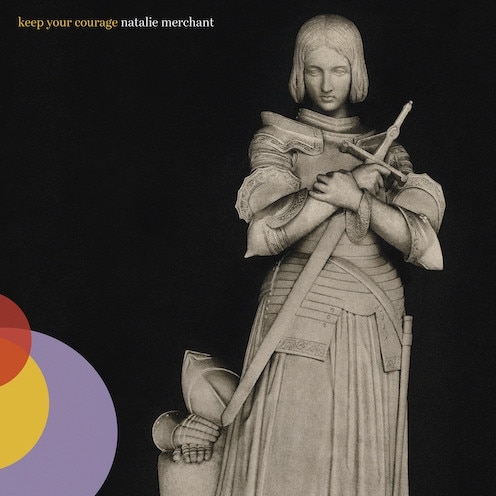
INDIE POP
Keep Your Courage
Natalie Merchant
Nonesuch Records
Natalie Merchant’s ninth solo studio album in a stellar 40-year recording career is, in her own words, “a song cycle that maps the journey of a courageous heart”. As that remark signals, her first release of new material for nine years is a characteristically poetic and passionate self-produced set, one in which the word “love” surfaces no fewer than 26 times, in numbers that invoke Aphrodite and Narcissus, eulogise a beloved sister and castigate a guardian angel for withholding love. The album will no doubt delight long-time fans but could test the patience of those unfamiliar with Merchant’s musing, especially since her 10 new tracks average over five minutes each. Musically, the range extends from stripped back, to sweeping orchestral soundscapes of strings and horns. Of a folkie tail-end cluster, the standout song was written by the group Lankum and enhanced by the legendary Lunasa, which recalls a 19th-century Irish community of female outcasts.
Tony Hillier

INDIE FOLK/ROCK
The Record
Boygenius
Interscope
Two-thirds through the lovely debut album by Boygenius is Leonard Cohen, a song in which Lucy Dacus quotes the titular poet’s Anthem, before dissing him as “an old man having an existential crisis, at a Buddhist monastery, writing horny poetry”. It’s the kind of cheek fans have come to expect from the supergroup, which is completed by fellow acclaimed US songwriters Phoebe Bridgers and Julien Baker. The trio has a knack for playfully ribbing at male hero worship, as evidenced in their homage to Crosby, Stills and Nash on the artwork for their debut EP. Beneath the irony, there’s a reverence for their musical forebears and old-fashioned songwriting, and it’s this balancing act between snark and sincerity that makes Boygenius so appealing. Much of this album was written individually, giving it the feel of disjointed B-sides from solo records — which is fine, because their individual work is so good. But the album, produced by Australian Catherine Marks, is at its best on the songs that synthesise their talents, particularly the crunchier rock cuts like $20, Not Strong Enough, and the wry Satanist.
Geordie Gray
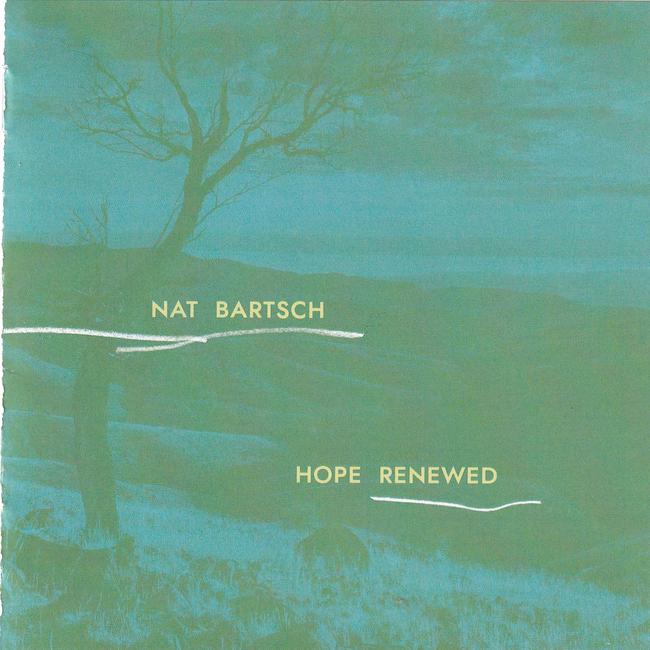
JAZZ
Hope Renewed
Nat Bartsch
Amica Records
Nat Bartsch’s 2021 album Hope, featuring her customary ethereal piano style and a string quartet, was justly nominated for a classical music ARIA Award. Hope Renewed is a reinterpretation of the same compositions, with her jazz quartet (guitarist Robbie Melville, bassist Tamara Murphy and drummer Maddison Carter), plus five classical musicians and post-rock ambient effects. The addition of improvisation now renders the previous album somewhat one-dimensional. In a sense, jazz has rescued eight compositions from the limitations of classical music, producing music that is truly good for the soul. The magical transformation of the music which Bartsch has achieved through a new vision should not be underestimated. Her own minimal piano style has never sounded more exquisite, and one continually marvels at the deep resonant sound of Murphy’s bass in the music’s lower registers, and Melville’s inspiring guitar solos. Bartsch herself says it all: “Hope Renewed is an epic, beautiful monster I’m proud to have found the audacity to create”.
Eric Myers
Album reviews for week of May 12 2023:
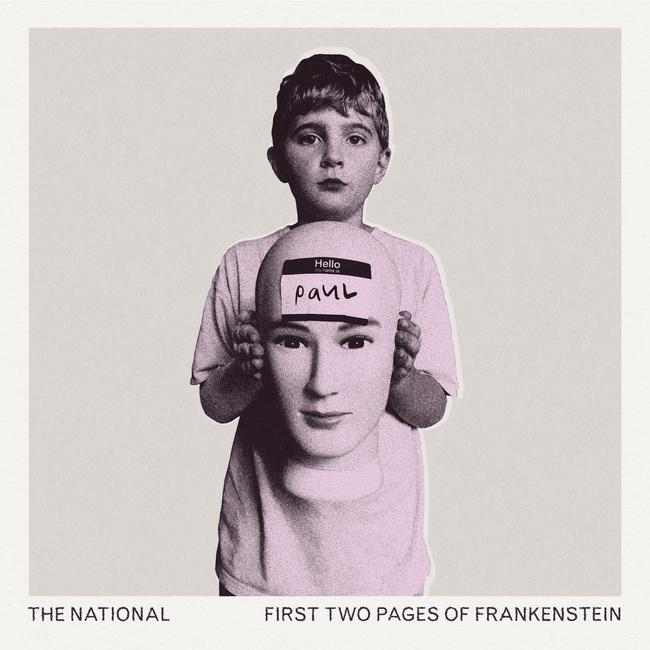
INDIE ROCK
First Two Pages of Frankenstein
The National
4AD
Early into The National’s ninth album, Matt Berninger describes divvying up possessions during a fictional break-up. He spends that stretch of second track Eucalyptus cataloguing certain records (The Afghan Whigs, Cowboy Junkies) and other relationship artefacts, before eventually asking “What if I reinvented again?” Such attacks of uncertainty are a hallmark of Berninger’s lyrics, combining with the singer’s subtle phrasing choices and ever-softening baritone to create a cosy intimacy with his characters’ internal reckonings and gnawing self-doubt. This time around, that feeling is more autobiographical than usual. As the Ohio-via-New York band endured an inevitable sidelining during lockdowns, Berninger experienced writer’s block for more than a year, questioning his own creative future. He finally broke the drought after dipping into the start of Mary Shelley’s proto-sci-fi classic, finding inspiration for the piano ballad Your Mind Is Not Your Friend as well as the album’s title. Another turning point came with the lead single Tropic Morning News, the indie rock ensemble’s most accessible song yet. Named for an alternate term for doomscrolling coined by Berninger’s wife – and occasional co-writer – Carin Besser, it applies a poppy punch to The National’s longstanding signatures.
Those include Berninger’s poignant image-making, Aaron Dessner’s layered multi-instrumental contributions and Bryce Dessner’s understated string arrangements, performed here by members of the London Contemporary Orchestra. Bryan Devendorf’s fluid, capricious drumming adopts a twilight flicker thanks to more processed-sounding effects, while he remains in easy closeness with his bassist brother, Scott Devendorf. Guest vocal harmonies come from Sufjan Stevens, Phoebe Bridgers and Taylor Swift – the latter a repeat collaborator with Aaron Dessner – but those are fairly downplayed in the mix on this self-produced album. Extra singers were given prominence on 2019’s reset-minded I Am Easy to Find, whereas this one reappoints Berninger as the clear focus. And that’s always going to be a smart bet: witness his steady hand on Once Upon A Poolside, one of those mood-setting album openers that The National does so well. Though there are musical highlights in the thrilling upward trajectory of Grease In Your Hair and elsewhere, it’s that trusting warmth that proves so difficult for other bands to match. When Berninger cites blackout curtains and the silent treatment somewhere between a whisper and a mumble on Ice Machines, it feels like reconnecting with an old friend.
Doug Wallen
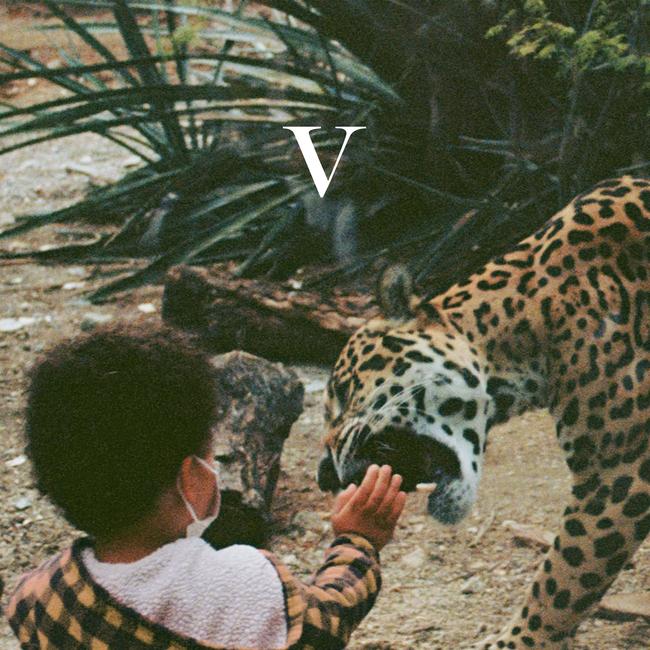
SOFT ROCK/PSYCH
V
Unknown Mortal Orchestra
Jagjaguwar
As Unknown Mortal Orchestra, Hawaiian-New Zealand musician Ruban Nielson crafts crusty psych-pop shot through with jumbled guitar lines and a funky rhythmic snap. On this double album, Nielson collaborates with his brother Kody, his father Chris and bassist Jake Portrait. That yields 14 sun-dazed tracks that cleave neatly between bubblegum soft rock and meandering instrumentals. The former leave more of an impression than the latter, especially with a mid-album streak that includes the AM-radio sweetness of That Life, Layla and Weekend Run. There are some playful stylistic flourishes to certain instrumentals, like the smooth jazz of The Widow and Hawaiian influences on the closing Drag. It all makes for a pleasant enough hang – especially on headphones – but some easy cuts could have streamlined the whole thing. Then again, Nielson has never been prone to such concessions, and his continued devotion to more sidelong pursuits is admirable.
Doug Wallen

ALTERNATIVE
Oro, Plata, Mata
Mo’Ju
Virgin Music Australia
A nod to their uncle Peque Gallaga’s film of the same name, Mo’Ju’s absorbing fourth album is split into three distinct parts: the dense and frenetic Oro is consumed by questions about capitalism and greed, Plata contemplates the human condition, and Mata is the light and optimistic denouement. The production and arrangements across the record are exploratory and bold, from the splintered and sawing Gold to the compacted, swirling Midas. Over their last few releases – most notably 2021’s OK – Mo’Ju has been reaching for a sonic palette that runs close to the prismatic music of Haitus Kaiyote, or even the pin-balling compositions of Flume. It’s almost hard to believe this is the same artist that began their career singing swampy blues, but evolution and reinvention is at Mo’Ju’s core. Lead single Change Has To Come is the album’s thunderous and hopeful heart, and the Milan Ring-produced Bran Nue Wurld is another high point. Arresting and dynamic, Oro, Plata, Mata represents a new peak.
Jules LeFevre
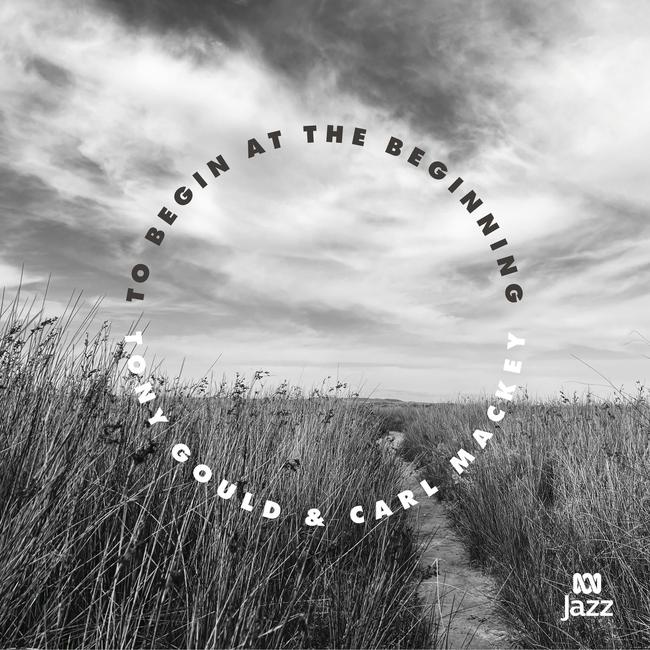
JAZZ
To Begin At The Beginning
Tony Gould & Carl Mackey
ABC Music
The veteran Melbourne pianist Tony Gould is apparently not particularly happy with his playing on this new album with saxophonist Carl Mackey. However, I can detect little evidence here to justify such a reservation. The essential hallmarks of Gould’s customary style are present: the melodic beauty at his fingertips; his sensitivity as an accompanist in the duo context; and a poetic quality that engenders generosity of spirit in the listener. What I hear most in Gould’s pianism is repose tinged with sadness. Here is an artist who feels things deeply, and one can always hear that depth in the music. Also this album is a splendid showcase for the hitherto little-known artistry of Perth’s Carl Mackey, now living in Melbourne. Clearly he has one of the most beautiful saxophone sounds in Australian jazz, and handles Gould’s six ruminative compositions (and one William Walton tune) with faultless authority. I can understand why a perceptive critic, writing in Dingo, recently gave this album five stars.
Eric Myers
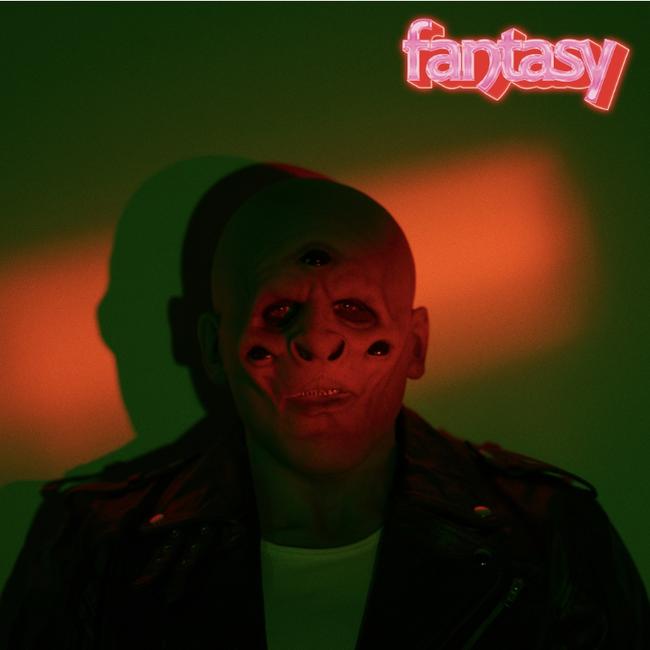
ELECTRONIC
Fantasy
M83
Virgin Music Australia
Anthony Gonzalez aka M83 may be best known for his 2011 hit Midnight City, but the French multi-instrumentalist, who says he has since rejected the “pressures of commercial needs” that single created for him, has channelled simpler, pre-fame times to inspire his ninth album. It’s thus the delicate melding of guitars, synths and dreamy vocals that anchor proceedings on Fantasy, as ambient soundscapes brush up against up-tempo tracks. Lyrically deep and impressively layered, Fantasy is a solitary, oft-breezy affair that meanders at times but, noting Gonzalez’s chops as a film scorer, ultimately rewards full immersion. Opener Water Deep glides on the calming strumming of an acoustic guitar before entering a beatless sonic realm, while Oceans Niagara throws synths, anthemic guitar and drums together for a bigger, swirling foray worthy of lead single status. Tracks like Amnesia and the bass-driven, synth-laden Earth To Sea have an 80s vibe to them. The crisp, urgent drum-and-synth combo of Sunny Boy, meanwhile, is an album standout and a welcome tempo raiser towards the back end.
Tim McNamara


To join the conversation, please log in. Don't have an account? Register
Join the conversation, you are commenting as Logout